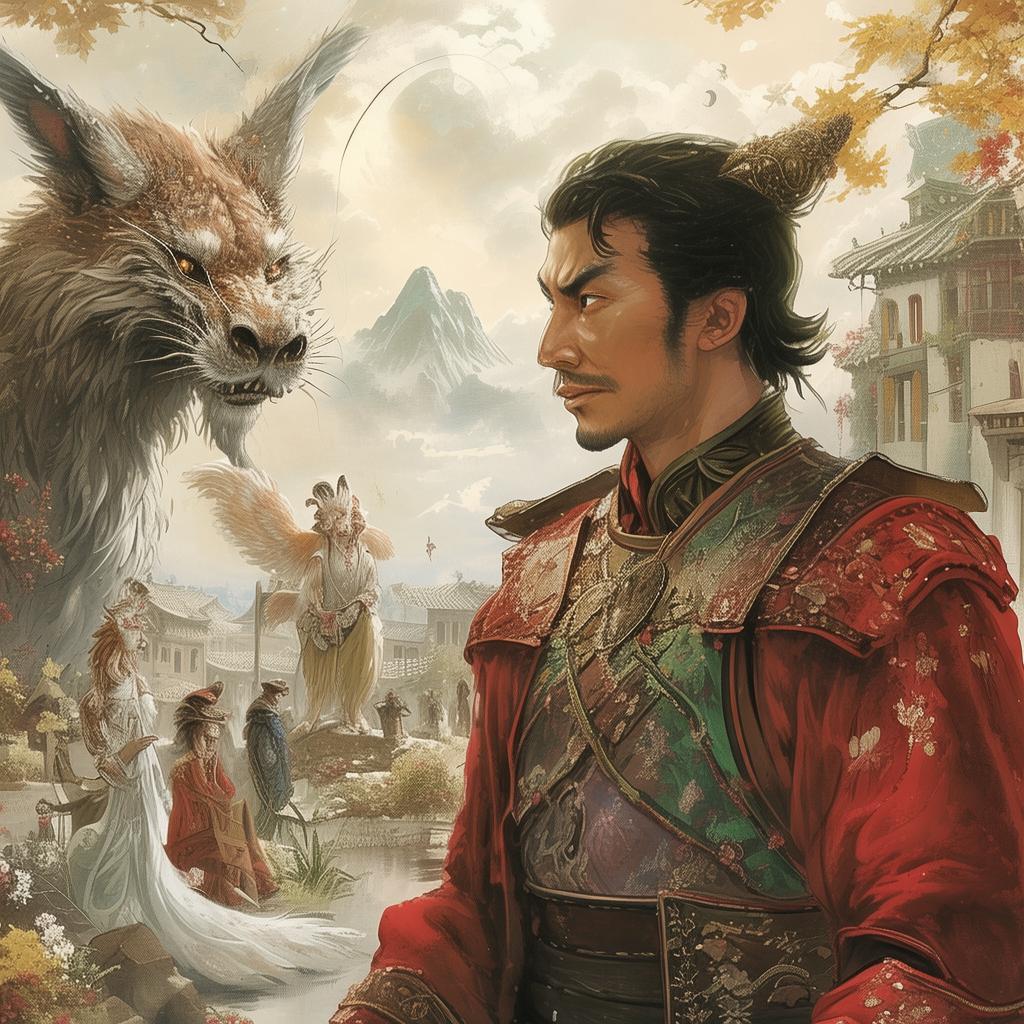The Last Chisel of the Mountain
In the heart of a bustling city, there stood a solitary workshop, hidden away in a quiet alley. The workshop was a sanctuary for Li, a stonecutter who had spent his life crafting intricate carvings from the raw stones of the mountainside. Li was known for his meticulous work, but he felt an emptiness within him that no amount of chiseling could fill.
One evening, as Li worked late into the night, he stumbled upon an old, dusty book tucked away in a corner of the workshop. The book was a relic of the past, a testament to the ancient art of stonecutting. As he flipped through the pages, he realized that the images depicted a stonecutter named Feng, who had lived centuries ago, and whose work was said to be imbued with the spirit of the mountains.
The book spoke of Feng's mastery, his ability to carve the essence of the mountains into stones, and of his quest to create the perfect masterpiece. The tale of Feng's journey resonated with Li, who felt a strange kinship with the ancient stonecutter. It was as if Feng's spirit had been waiting for someone like Li to continue his legacy.
Determined to uncover the truth behind Feng's legend, Li set out on a journey to the mountains where Feng had once worked. The mountains were wild and untamed, a place where time seemed to stand still. As Li ventured deeper into the forest, he felt the weight of history pressing down upon him.
In the heart of the mountains, Li found the ancient workshop of Feng, preserved in its original state. The tools, the stones, and the carvings were all there, untouched by time. Li began to work, his hands moving with a sense of purpose he had never felt before. The stone seemed to respond to his touch, the chisel gliding effortlessly across the surface, creating a carving that seemed to come to life.
As Li worked, he felt a presence, a ghostly figure watching over him. It was Feng, his ancient counterpart, and he spoke to Li through the wind. "You have the touch of the mountains, but you lack the heart of the stonecutter," Feng said. "To truly create, you must embrace the pain and the joy that comes with crafting."
Li understood that Feng was speaking of the emotional journey of the stonecutter, the connection to the stone and the art of transformation. He realized that his emptiness stemmed from his inability to connect with the stones on a deeper level.
With newfound clarity, Li began to work differently. He chiseled not just with his hands, but with his heart, infusing each piece with his emotions. The carvings began to transform, becoming more than mere works of art; they became expressions of Li's soul.
One day, as Li stood before his latest creation, he felt the presence of Feng once more. "You have learned the true art of stonecutting," Feng said. "Now, go back to the city and share your gift with others."

Li returned to the city, his heart full of purpose. He opened his workshop to the public, sharing his art and his story. The people were amazed by his work, and they felt the emotion that poured from each stone. Li's carvings became more than mere decorations; they became a reflection of the human experience.
As Li continued to work, he found that the emptiness within him had vanished. The connection he had forged with the mountains and the stones had filled the void, giving him a sense of fulfillment that he had never known before.
One evening, as Li sat in his workshop, the old book fell open to a page that he had not seen before. It was a depiction of a mountain, with a chisel held high by a figure that looked strikingly like him. Li realized that he was the continuation of Feng's legacy, that the art of stonecutting was not just about the craft, but about the timeless connection between the human spirit and the earth.
The Last Chisel of the Mountain became a symbol of the enduring bond between the ancient and the modern, a tale of transformation and the pursuit of a timeless craft. And as the story spread, it inspired others to seek their own paths, to embrace the beauty of the unknown, and to craft their own legacies.
✨ Original Statement ✨
All articles published on this website (including but not limited to text, images, videos, and other content) are original or authorized for reposting and are protected by relevant laws. Without the explicit written permission of this website, no individual or organization may copy, modify, repost, or use the content for commercial purposes.
If you need to quote or cooperate, please contact this site for authorization. We reserve the right to pursue legal responsibility for any unauthorized use.
Hereby declared.









